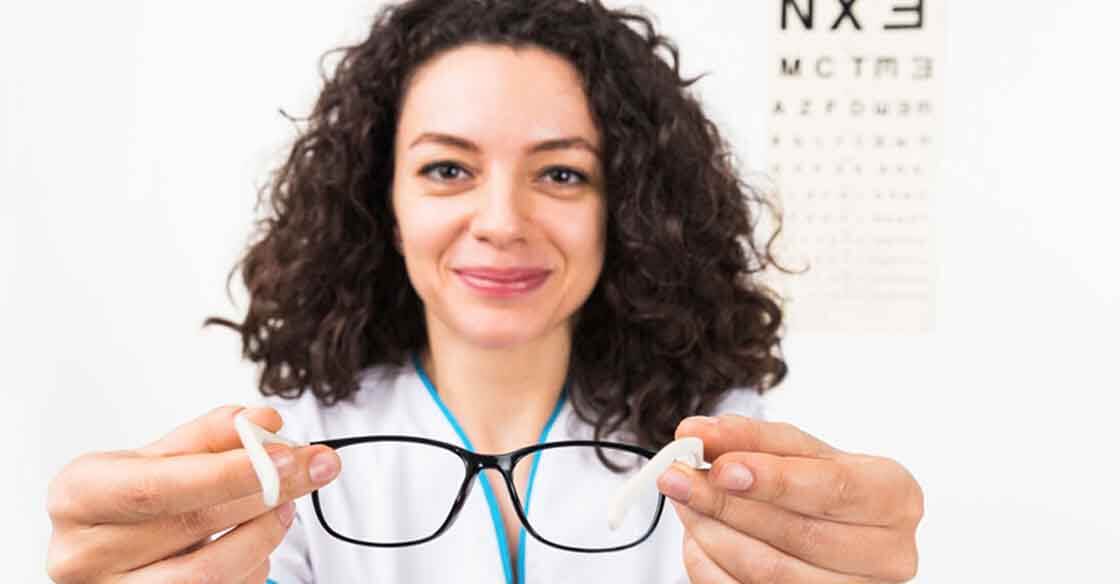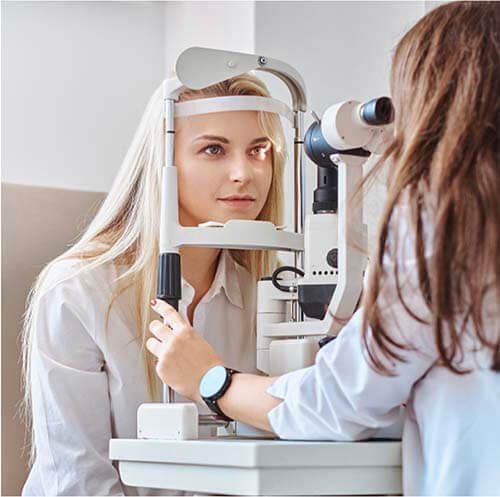The Importance of Normal Eye Exams: Insights From a Knowledgeable Optometrist
Normal eye tests function as a critical component of medical care that expands beyond plain vision correction. An experienced optometrist can provide understandings right into exactly how these analyses not just discover typical eye conditions but also disclose underlying wellness problems that may or else go undetected. The quiet progression of diseases such as glaucoma and macular degeneration emphasizes the need of very early detection. Understanding the regularity and value of these evaluations can ultimately affect one's lasting wellness trajectory, increasing the concern of how often people ought to prioritize their eye health in the context of total health.
Advantages of Normal Eye Examinations
Although several individuals might forget the value of normal eye examinations, these analyses play an important duty in maintaining general wellness and well-being. Routine eye evaluations offer not only to assess vision but likewise to detect early indications of systemic wellness issues, including diabetic issues and high blood pressure. By identifying these conditions at their creation, people can get prompt treatments, significantly enhancing lasting results.
In addition, eye tests can help in keeping track of existing health and wellness concerns, ensuring that any type of modifications in vision or eye health and wellness are without delay addressed (optometrist). The assessments enable individualized referrals pertaining to glasses, lifestyle adjustments, and protective measures versus potential eye pressure or damages
Beyond physical health, the benefits of regular eye exams encompass enhancing lifestyle. Improved vision helps with better performance in daily activities, from reading to driving, thereby contributing to greater independence and safety. Ultimately, prioritizing eye examinations cultivates an aggressive technique to wellness monitoring, equipping individuals to take fee of their well-being. Regular check-ups are an important component of a comprehensive medical care method, making sure that both vision and general health are maintained throughout life.
Common Eye Conditions Detected
Regular eye tests contribute in discovering a range of common eye problems that can considerably influence vision and total health and wellness. Amongst the most prevalent problems recognized during these examinations are refractive mistakes, consisting of myopia (nearsightedness), hyperopia (farsightedness), and astigmatism. These problems commonly materialize as blurred vision and can be quickly corrected with prescription glasses or call lenses.
Additionally, cataracts, which trigger clouding of the lens, are often identified in older adults. This problem can lead to decreased vision and calls for surgical treatment for resolution. An additional common problem is glaucoma, a team of eye conditions that damage the optic nerve, commonly linked to raised intraocular pressure. Early detection is critical as it can avoid permanent vision loss.
Age-related macular deterioration (AMD) is another significant condition that impacts main vision, specifically in people over 50. Ultimately, diabetic person retinopathy, an issue of diabetes, can cause serious vision disability otherwise monitored frequently. With detailed eye tests, these problems can be determined early, permitting for timely management and treatment to preserve vision and enhance lifestyle.
Importance of Early Discovery
Very early discovery of eye conditions plays an important role in maintaining vision and stopping considerable health difficulties. Lots of eye illness, such as glaucoma, diabetic retinopathy, and age-related macular deterioration, can progress silently without recognizable signs in their beginning. By the time signs manifest, irreparable damage might have happened, leading to irreversible vision loss.
Routine eye exams promote early medical diagnosis, permitting timely treatment and treatment. For example, dealing with elevated intraocular pressure can protect against the onset of glaucoma, while managing blood sugar level degrees can dramatically lower the threat of diabetic retinopathy. In addition, problems like cataracts can be effectively taken care of with medical click site treatment when recognized early.

Just How Frequently Should You Check Out?
Determining the frequency of eye exams is vital for keeping optimum eye wellness and vision. The general recommendation for adults is to have an extensive eye examination every one to two years, depending on private risk aspects and age. For individuals matured 18 to 60, a test every two years is generally enough if no vision troubles are existing. However, those over 60 should consider annual exams, as the threat of age-related problems raises substantially.
People with particular risk variables, such as a family members background of eye illness, diabetes, or existing vision troubles, might require even more regular assessments. Youngsters need to have their very first eye exam at 6 months of age, adhered to by additional tests at age three and prior to going into school. Normal examinations during childhood are important as vision can alter rapidly during developmental years.
Inevitably, the frequency of visits must be tailored per individual's hop over to here conditions, consisting of lifestyle, job-related risks, and any pre-existing eye conditions. Consulting with an eye treatment expert can give individualized referrals, making sure that your eye health is consistently kept track of and kept.
Tips for Your Eye Exam
Planning for your eye exam can improve the performance of the check out and make certain an extensive analysis of your eye health. To optimize your time with the eye medical professional, it is important to collect relevant information prior to your visit. Beginning by compiling a listing of any kind of drugs you are currently taking, including non-prescription medicines and supplements, as these can impact eye health and wellness.
Furthermore, record any type of signs you have actually experienced, such as obscured vision, discomfort, or migraines. This info will certainly help your eye physician in identifying prospective problems.
It is likewise helpful to have a family members background of eye conditions available, as genetic elements can add to your eye health. Finally, think about scheduling your exam for a time when you are less rushed, permitting you to ask inquiries and review your worries completely. By preparing effectively, you make sure that your eye test is productive which your ophthalmologist discover this has all the essential information to provide the most effective treatment possible.

Final Thought
Routine eye tests play a vital duty in maintaining both vision and total health. Ultimately, focusing on thorough eye assessments contributes dramatically to the preservation of vision and the renovation of top quality of life, underlining the necessity of regular eye treatment in preventive health care approaches.
Regular eye exams are critical in finding a range of typical eye problems that can dramatically impact vision and overall health and wellness.Figuring out the regularity of eye exams is important for preserving ideal eye wellness and vision.Preparing for your eye test can boost the performance of the visit and make certain a comprehensive assessment of your eye health and wellness (optometrist). By preparing effectively, you make sure that your eye test is effective and that your eye physician has all the needed info to supply the finest treatment possible
Eventually, prioritizing comprehensive eye analyses contributes considerably to the preservation of vision and the improvement of top quality of life, underscoring the requirement of routine eye treatment in preventative health care techniques.